
Whiting School
of Engineering
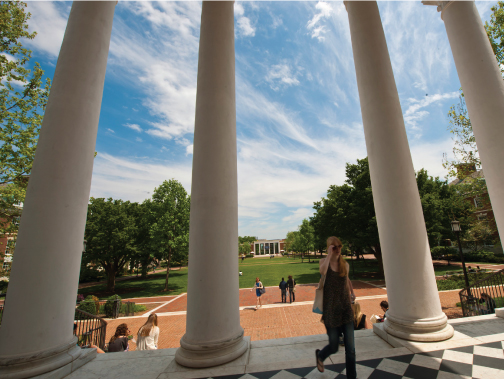

The combined Baltimore/ Washington region is home to nearly 10 million people, many of whom work in the aerospace and defense, advanced manufacturing, cybersecurity and IT, and financial services industries, as well as for the military and federal government.
We are the source of many of the discoveries and innovations that have shaped the past and are defining the future. From potable water in the 1920s to 21stcentury prosthetic limbs, to a COVID-19 tracking map, we solve complex global challenges to make the world a better place.
Our faculty are pioneers in their fields, our students are dedicated and driven, and our entire community contributes to the outstanding resources and breadth of expertise that exemplify Johns Hopkins University.
We are defined by a culture of intentional collaboration. Our strategic partnerships—across the institution and around the world—advance technology, human health, and resiliency.
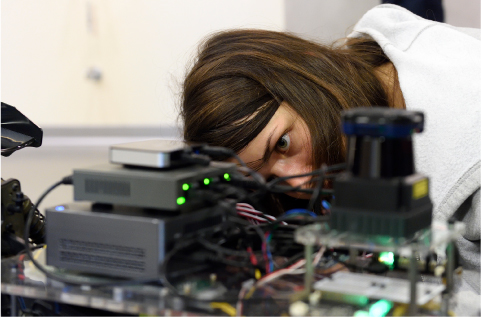
Founded in 1876, Johns Hopkins was the nation’s first research university, and is the largest recipient of federal research funding.
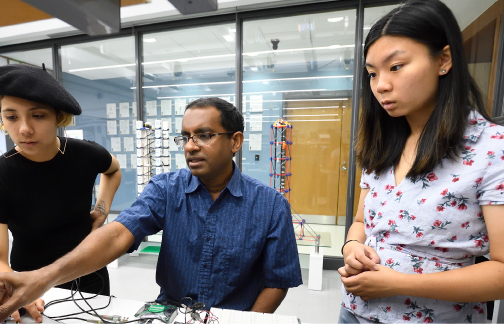
Hopkins Engineering’s Center for Educational Outreach provides STEM programs and activities for more than 6,500 pre-K through 12th-grade students annually in Baltimore and around the world.
At Johns Hopkins Engineering, you don’t just take in knowledge—you create it. Blurring the lines between education and research, our academic programs combine theory with practical experiences and address real-world problems. Degrees and programs are ever evolving, and students benefit from our close interdisciplinary partnerships across the university, including with the School of Medicine, the Krieger School of Arts and Sciences, the JHU Applied Physics Laboratory, the Bloomberg School of Public Health, and the Carey Business School.
~1,900 undergraduates
~1,200 full-time master’s students
~4,700 part-time and online master’s students
~1,200 doctoral students
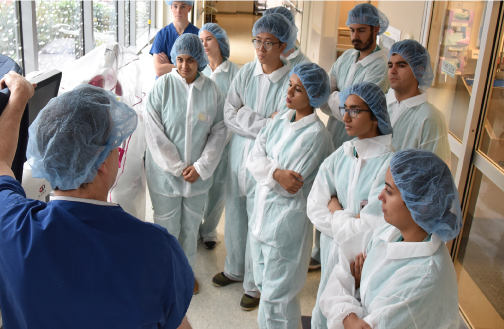
Biomedical Engineering— We invented the field and are ranked #1 in the nation.
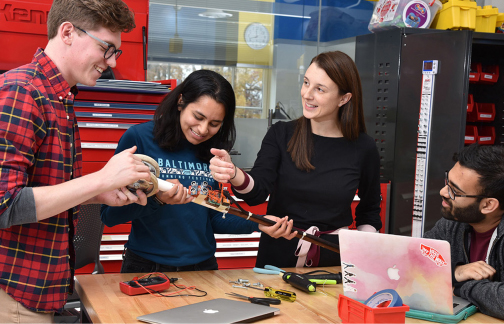
Unique cross-divisional departments enable a world of interdisciplinary opportunities. Biomedical Engineering (Engineering & School of Medicine) Environmental Health and Engineering (Engineering & Bloomberg School of Public Health)



Researchers in our Alliance for Cardiovascular Diagnostic and Treatment Innovation (ADVANCE) have devised a new artificial intelligencebased approach that can predict if and when a patient could die of cardiac arrest.
In more than 25 interdisciplinary research centers and institutes, our engineers address society’s most critical challenges.
Engineers in our Ralph S. O’Connor Sustainable Energy Institute are developing green/renewable alternatives to fossil fuels and technologies to power the electric grid.
Engineers in the Hopkins Extreme Materials Institute use computer-modeling techniques to predict the cataclysmic effects of an asteroid/Earth collision.
Experts at our Institute for Assured Autonomy are working to ensure the safety, resiliency, and reliability of autonomous systems–from self-driving cars and first-responder robots to home security systems and health-monitoring devices.
In the Center for Language and Speech Processing, our researchers built the speech recognition technologies that power Alexa, Siri, and Google Translate.
A team led by researchers in the Institute for NanoBioTechnology developed a portable, low-cost device and cellphone app that can diagnose gonorrhea in less than 15 minutes.
Funded by the NIH and founded by Johns Hopkins University and Howard University, NeuroTech Harbor works with innovators to accelerate the development of groundbreaking solutions that alleviate human suffering from neurological conditions.
See a full list of our research centers and institutes.
engineering.jhu.edu/wse-research/centers-institutesDesign project sponsors, including Stanley Black & Decker, the U.S. military, Amazon, Medtronic, and Paul Reed Smith Guitars, help Hopkins Engineering undergraduates devise novel solutions to their unique industry challenges.

From commercializing faculty and student technologies and informing national policy on technology-related issues to providing support, educational programs, and resources that strengthen our entrepreneurial culture, we offer our expertise and breakthroughs that contribute to society’s betterment.
FastForward U provides training, space, funding, and a community that empowers student entrepreneurs to transform ideas and disruptive technologies into successful businesses.
The Center for Leadership Education offers academic and co-curricular programs and mentoring that prepare students for professional success.
The Hopkins Engineering Alumni community, a 40,000+ strong powerful global network, supports students in their career goals by connecting them with alumni who are CEOs, founders of Silicon Valley startups, leaders in government and academia, and more.
The Center for Educational Outreach is a team of scientists, engineers, and educators dedicated to inspiring and preparing elementary, middle, and high school students for careers in STEM.
Johns Hopkins Technology Ventures brings the benefits of academic discovery to the world. They provide faculty with guidance, advice, and support regarding licensing, patent, and technology commercialization.
FastForward, the university’s business accelerator, provides a coordinated suite of resources, including funding and space for startups, designed to efficiently move technologies to the marketplace.
Industry partners benefit from Hopkins Engineering expertise. Sponsored research connects corporations with our faculty, students, and facilities, and our partners offer students invaluable access to career opportunities.
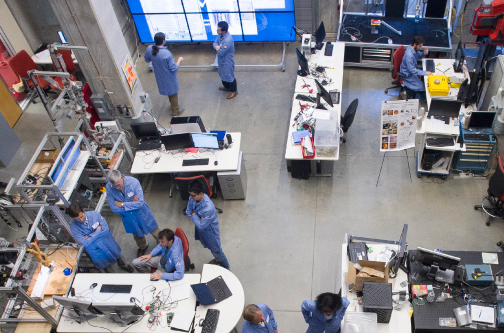
In just the past two years, WSE faculty members disclosed more than 175 reports of invention and were issued 250 patents.